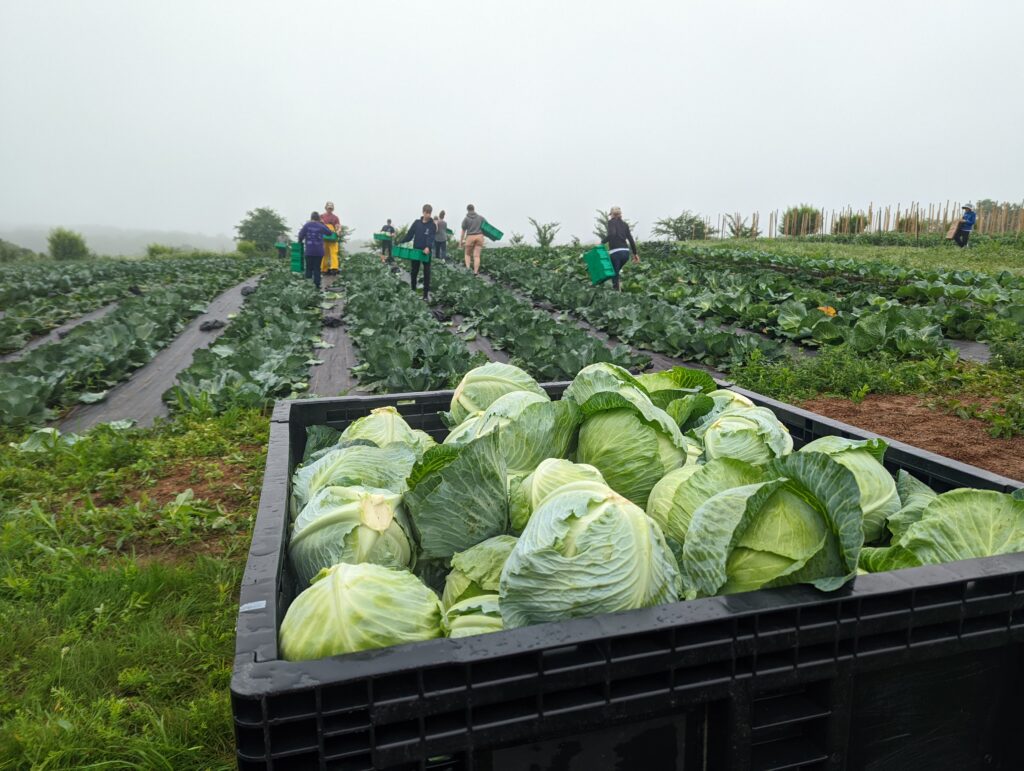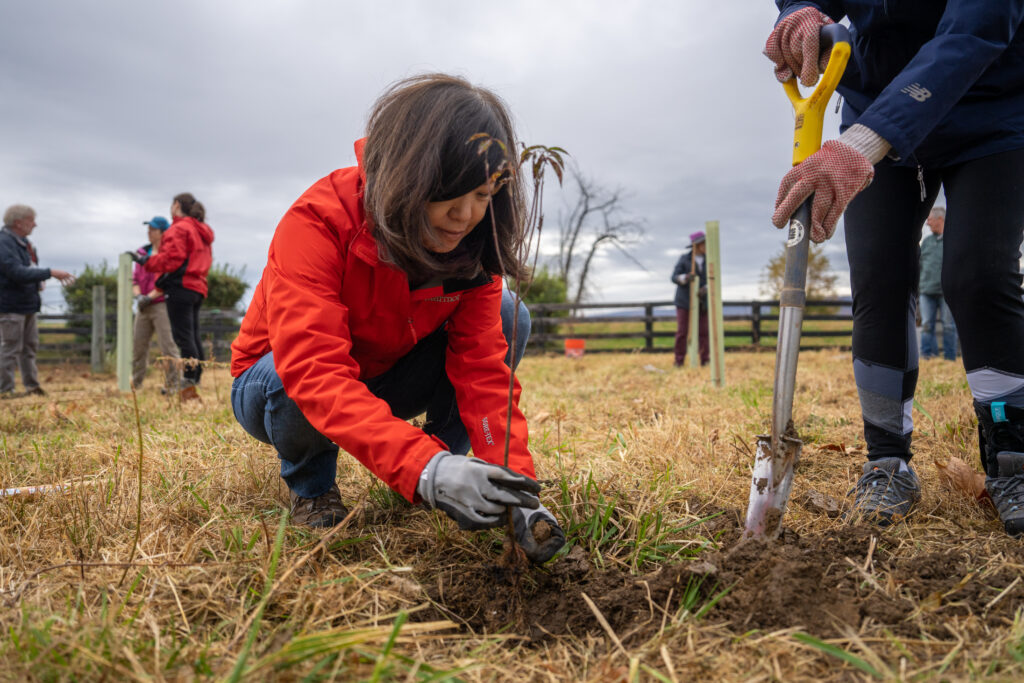Volunteers play a vital role in our organization by building additional capacity and by strengthening the connection between PEC and the communities it serves. One of the greatest resources in the Piedmont region is the incredible range of talent and expertise of its residents, combined with a shared commitment to making our communities better.
How do I volunteer?
Visit letsvolunteer.org to get started! PEC has partnered with the PATH Foundation to utilize their free Volunteer Hub to manage our volunteer opportunities. You’ll need to make an account and log in to sign up.
If you don’t see something of interest right now, check back later! You can also get in touch with Lea Justice, [email protected], with any questions, and to be directed to the appropriate staff.
Types of Volunteer Roles
Volunteer opportunities will change from month to month and season to season. We find that most opportunities fall within the following general categories:
Pitch in at our Community Farm
Since 2019, PEC’s Community Farm at Roundabout Meadows has donated 100% of what is grown on the farm to area food pantries. This would not be possible without the assistance of our incredible team of volunteers, who dedicate hundreds of hours to help with lots of different farm tasks. Join our Farm Volunteer Corps! As a community farm volunteer, you can help feed tens of thousands of food insecure people by helping us plant seeds in our greenhouse, transplant from our greenhouse to our gardens, harvest ripe veggies and fruit, and sort and pack food before it gets delivered.


Plant trees with our Plantings for the Piedmont Program
Since 2021, Plantings for the Piedmont has directly restored about 79 acres of riparian buffers and 3 acres of upland forest in the Rappahannock and Potomac watersheds by planting about 24,000 trees. Immeasurable volumes of aquifers and downstream ecosystems are positively impacted by this collaborative effort. Each spring and fall, volunteers are invited to help plant trees along waterways across the Piedmont. Send an email to [email protected] to be notified of our next planting.
Specialized Work
On occasion, PEC needs assistance from volunteers who have a special skill set or access to special equipment, such as photography, videography, graphic design, illustrations, GIS mapping, surveying, writing and more.
For current opportunities, visit letsvolunteer.org. To express other volunteer interests that are not included there, email our Volunteer Coordinator Lea Justice at [email protected].

